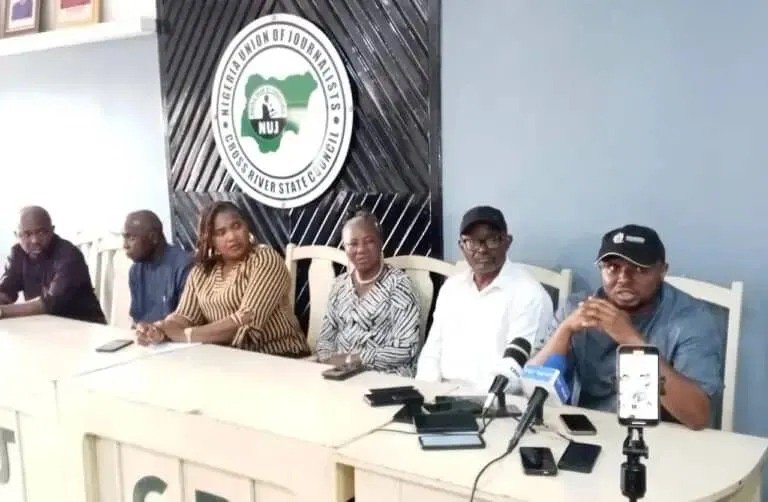VC UNICAL, Prof. Florence Obi
By Anietie Akpan
The University of Calabar (UNICAL) and its Governing Council have been given seven days to withdraw and correct the selection advertisement requirements of May 27, 2025 of candidates for the post of Vice-Chancellor (VC) or face legal action.
A petition dated June 17, 2025 by Joseph Eyo Duke, a Provessor of Business Management of the University of Calabar through his counsel, Barr. Ubong Akpan, to the Pro-Chancellor and Chairman Governing Council, submitted that the advertisement and the Council’s decisions contain legal defects and are invalid on the following grounds, supported by the University of Calabar Act, 1979, the 1999 Constitution, and judicial authorities:
Citing various authorities, the petitioner said, the “10-Year Post-Professorial experience criterion adopted without a Senate and Council-approved statute under Section 10 of the Act or a proper resolution under First Schedule, Paragraph 4(2)(a)(i), exceeds the Council’s authority, as evidenced by member dissent. This is ultra vires.
“The criterion’s reliance on an unspecified and bogus ‘federal directive’, not authorized by the Act is invalid. The PhD requirement is an unworthy invention intended to exclude Medical College Professors with equivalent qualifications (e.g., MBBS, Fellowships), is not authorized by First Schedule, Paragraph 4(2)(a)(i) and breaches Section 19 of the Act, which prohibits discrimination”.
He argued that the procedural unfairness is a breach of due process as “the Council’s decision-making process lacked consensus, quorum compliance under Third Schedule, Article 1(6) (requiring seven members, including one from Section 5(d), (e), or (h)), and Senate consultation under Section 7(1) and First Schedule, Paragraph 4(3), breaching Section 36(1) of the 1999 Constitution, which guarantees a fair hearing.
“That discrimination is a breach of Non-Discrimination and Federal Character Principles hence the 10-year criterion and PhD requirement, linked to zoning biases targeting specific regions or professional groups, discriminate against qualified candidates, breaching Section 42(1) and Section 14(3) of the 1999 Constitution and Section 19 of the Act. A.G. Abia State (2002) upheld federal character, voiding discriminatory provisions”.
He said, “Inconsistent application, allowing Prof. Obi, to be earlier screened on a 9-year criterion and non-PhD acting Vice-Chancellors but excluding others, violates equality under Section 17(1), as held in Okogie v. A.G. Lagos State (1981) 2 NCLR 337 and Ukeje v. Ukeje (2014) 11 NWLR (Pt. 1418) 384.
“The Council’s use of First Schedule, Paragraph 4(2)(a)(i) to impose exclusionary criteria lacks correlation with administrative competence and breaches Section 6(1)’s duty to act in UNICAL’s interest in good faith”.
Counsel to Prof. Duke further stated that the action by the university “is a breach of legitimate expectation as the deviation from UNICAL’s 5–9-year benchmark undermines stakeholders’ legitimate expectation of continuity, breaching administrative law principles.
“The 10-year criterion, exceeding historical and national norms (6–8 years) without justification, is unreasonable and disproportionate, failing the Wednesbury test (Associated Provincial Picture Houses Ltd v. Wednesbury Corporation [1948] 1 KB 223). A.G. Kaduna State (2023) scrutinized unreasonable actions, supporting invalidation.
“Reliance on an unspecified ‘Federal directive’ infringes UNICAL’s autonomy under Section 2A of the Universities (Miscellaneous Provisions) (Amendment) Act, 2003, as held in A.G. Kaduna State (2023) and INEC v. Musa (2003)”.
Barr. Akpan maintained that “the ultra vires actions expose Council members to liability under Section 2(a) of the Public Officers Protection Act, Cap P41, for acting outside authority, as confirmed in Adesanya v. President of Nigeria (1981) 2 NCLR 358 and Angba (2025)”.
Should the Council fail to comply with this notice, he said, “our Client intends to seek the following reliefs in the Federal High Court, Calabar, under Section 251(1)(p) of the 1999 Constitution declaring that the “10-Year criterion is ultra vires and void for lacking statutory authorization under Section 10 or a proper resolution, and for relying on a misrepresented directive.
“That the Council’s process, lacking consensus, quorum, and Senate consultation, breaches Section 36(1) and natural justice, rendering the Advertisement invalid.
That the 10-year criterion and PhD requirement discriminate, breaching Section 42(1), Section 14(3), and Section 19, and are unconstitutional.
“That reliance on an unauthorized directive infringes UNICAL’s autonomy under Section 2A, rendering the decision ultra vires.
“That ultra vires decisions expose Council members to liability under Section 2(a), Public Officers Protection Act, justifying judicial intervention”.
He therefore sought for an “Order of Certiorari quashing the advertisement for being ultra vires, unfair, discriminatory, and unreasonable.
“An injunction restraining the Defendants from implementing the Advertisement pending compliance with legal requirements.
“An order mandating re-advertisement with a single term, a 6–8-year criterion, Senate consultation, quorum compliance, and non-discriminatory application”.
Accordingly, Prof. Duke and his Counsel demanded that the Council, within seven days of receiving this notice, “withdraw the advertisement; rescind the advertisement dated May 27, 2025, due to its legal defects.
“Revise the 10-year criterion to 6–8 years, consistent with historical and national norms, or formalize via a statute under Section 10 with Senate/Council approval (Section 11(2)).
“Eliminate the PhD requirement to ensure inclusivity for Medical College Professors and others with equivalent qualifications. Reconvene the Council with a quorum (Third Schedule, Article 1(6)), consult the Senate (Section 7(1)), and document consensus to comply with Section 36(1).
“Ensure criteria are applied equitably, avoiding discrimination under Section 19, Section 42(1), and Section 14(3).
“Publish a new advertisement in a reputable newspaper,complying with First Schedule, Paragraph 4, the 1999 Constitution, and NUC guidelines”.
Failure to comply within seven days, he said, “our Client will institute proceedings in the Federal High Court, seeking the reliefs outlined above”.











